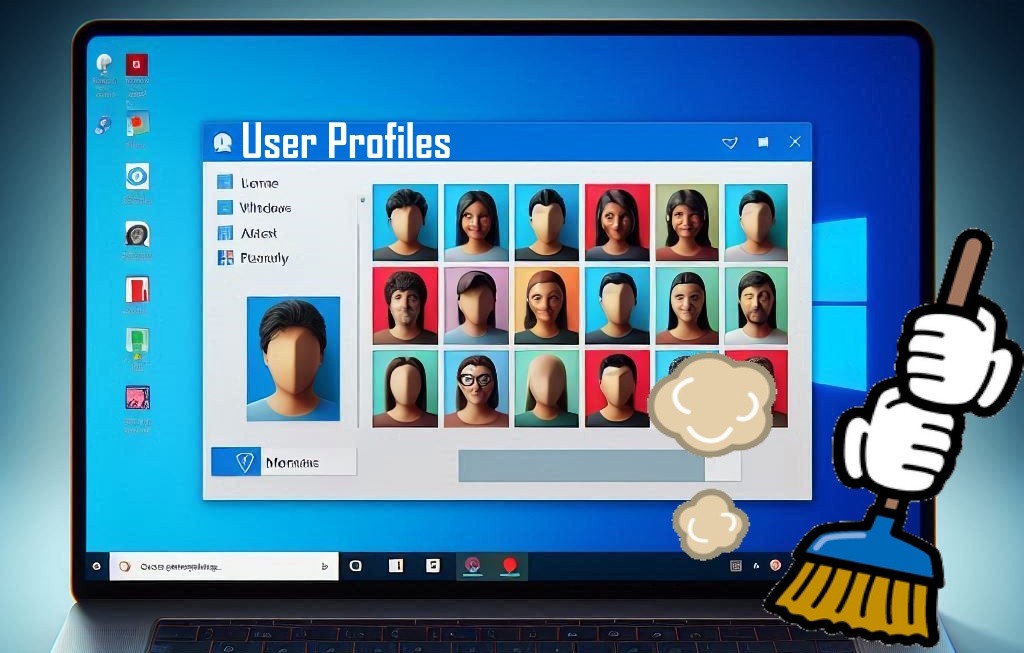

If you work with most companies there will come a time when you will need to clean out user profiles that have just too much temporary file junk in them.
Earlier this month we spent a few hours developing the script below that deletes:
Just run this script in an elevated Power Shell and you may get back a considerable amount of disk space as well as clearing up many odd user problems:
# Log off disconnected users
Get-WmiObject -Class Win32_LogonSession | Where-Object { $_.LogonType -eq 10 } | ForEach-Object {
logoff $_.LogonId
}
# Get the current user
$currentUser = [System.Security.Principal.WindowsIdentity]::GetCurrent().Name
# Get all user profiles except the default profile
$profiles = Get-WmiObject -Class Win32_UserProfile | Where-Object { $_.Special -eq $false }
# Grant access to each user profile
foreach ($profile in $profiles) {
$profilePath = $profile.LocalPath
Write-Host "Granting access to $profilePath for $currentUser"
$acl = Get-Acl $profilePath
$accessRule = New-Object System.Security.AccessControl.FileSystemAccessRule($currentUser, "FullControl", "ContainerInherit,ObjectInherit", "None", "Allow")
$acl.SetAccessRule($accessRule)
Set-Acl $profilePath $acl
}
Write-Host "Access granted to all user profiles for $currentUser"
# Initialize total recovered space variable
$totalRecoveredSpace = 0
# Delete temp folders and old downloads for each user profile, and calculate recovered space
$tempFolders = @(
"AppData\Local\Temp",
"AppData\Local\Microsoft\Windows\INetCache",
"AppData\Local\Microsoft\Windows\INetCookies",
"AppData\Local\Microsoft\Windows\Temporary Internet Files",
"AppData\Local\Microsoft\Windows\Explorer",
"AppData\Local\Temp\Low",
"AppData\Local\Google\Chrome\User Data\Default\Cache",
"AppData\Local\Mozilla\Firefox\Profiles\*\cache2" # Firefox cache
"AppData\Local\Microsoft\Edge\User Data\Default\Cache", # Edge cache
"AppData\Local\Microsoft\Edge\User Data\Default\Code Cache", # Edge code cache
"AppData\Local\Microsoft\Edge\User Data\Default\GPUCache" # Edge GPU cache
)
foreach ($profile in $profiles) {
$profilePath = $profile.LocalPath
$userName = [System.IO.Path]::GetFileName($profilePath) # Extract the username from the profile path
$userRecoveredSpace = 0
Write-Host "Processing user: $userName"
foreach ($folder in $tempFolders) {
$fullPath = Join-Path -Path $profilePath -ChildPath $folder
if (Test-Path $fullPath) {
$folderItems = Get-ChildItem -Path $fullPath -Recurse -Force -ErrorAction SilentlyContinue
$fileItems = $folderItems | Where-Object { -not $_.PsIsContainer }
$folderSizeBefore = ($fileItems | Measure-Object -Property Length -Sum).Sum
$folderItems | Remove-Item -Recurse -Force -ErrorAction SilentlyContinue
$folderSizeAfter = (Get-ChildItem -Path $fullPath -File -Recurse -Force -ErrorAction SilentlyContinue | Measure-Object -Property Length -Sum).Sum
$recoveredSpace = $folderSizeBefore - $folderSizeAfter
$userRecoveredSpace += $recoveredSpace
$totalRecoveredSpace += $recoveredSpace
}
}
# Delete old files and folders in the Downloads folder
$downloadsPath = Join-Path -Path $profilePath -ChildPath "Downloads"
if (Test-Path $downloadsPath) {
$oldItems = Get-ChildItem -Path $downloadsPath -Recurse -Force -ErrorAction SilentlyContinue | Where-Object { $_.LastWriteTime -lt (Get-Date).AddDays(-8) }
$downloadsSizeBefore = ($oldItems | Measure-Object -Property Length -Sum).Sum
$oldItems | Remove-Item -Recurse -Force -ErrorAction SilentlyContinue
$downloadsSizeAfter = (Get-ChildItem -Path $downloadsPath -File -Recurse -Force -ErrorAction SilentlyContinue | Measure-Object -Property Length -Sum).Sum
$downloadsRecoveredSpace = $downloadsSizeBefore - $downloadsSizeAfter
$userRecoveredSpace += $downloadsRecoveredSpace
$totalRecoveredSpace += $downloadsRecoveredSpace
}
Write-Host "User ${userName}: Recovered space: ${userRecoveredSpace} bytes"
}
# Empty all users' recycle bins
$recycleBinPath = "C:\$RECYCLE.BIN"
if (Test-Path $recycleBinPath) {
Get-ChildItem -Path $recycleBinPath -Recurse -Force -ErrorAction SilentlyContinue | Remove-Item -Recurse -Force -ErrorAction SilentlyContinue
Write-Host "Emptied all users' recycle bins"
}
# Report total recovered space
Write-Host "Total recovered space: ${totalRecoveredSpace} bytes"
This website uses cookies.